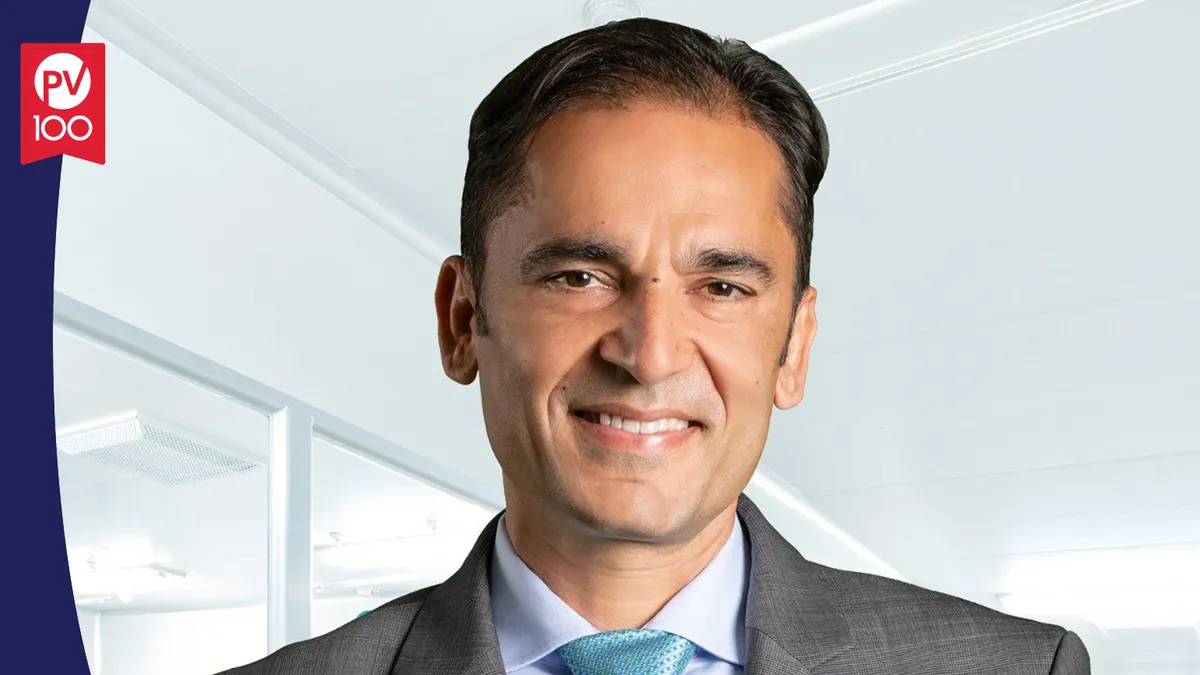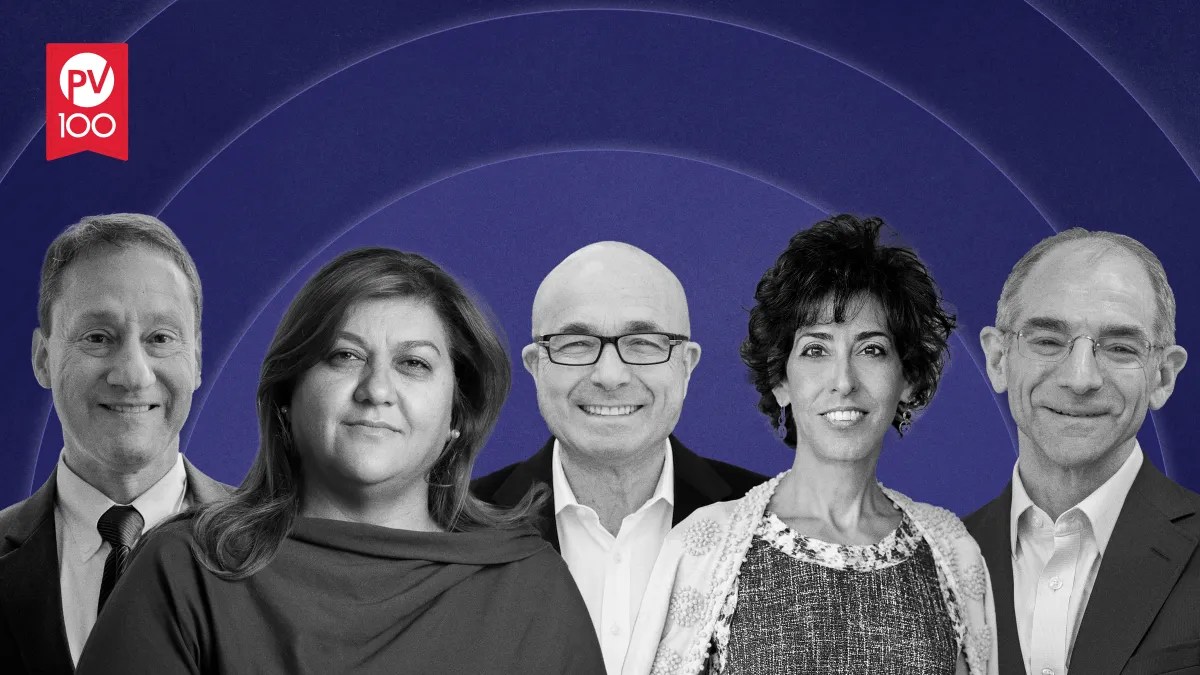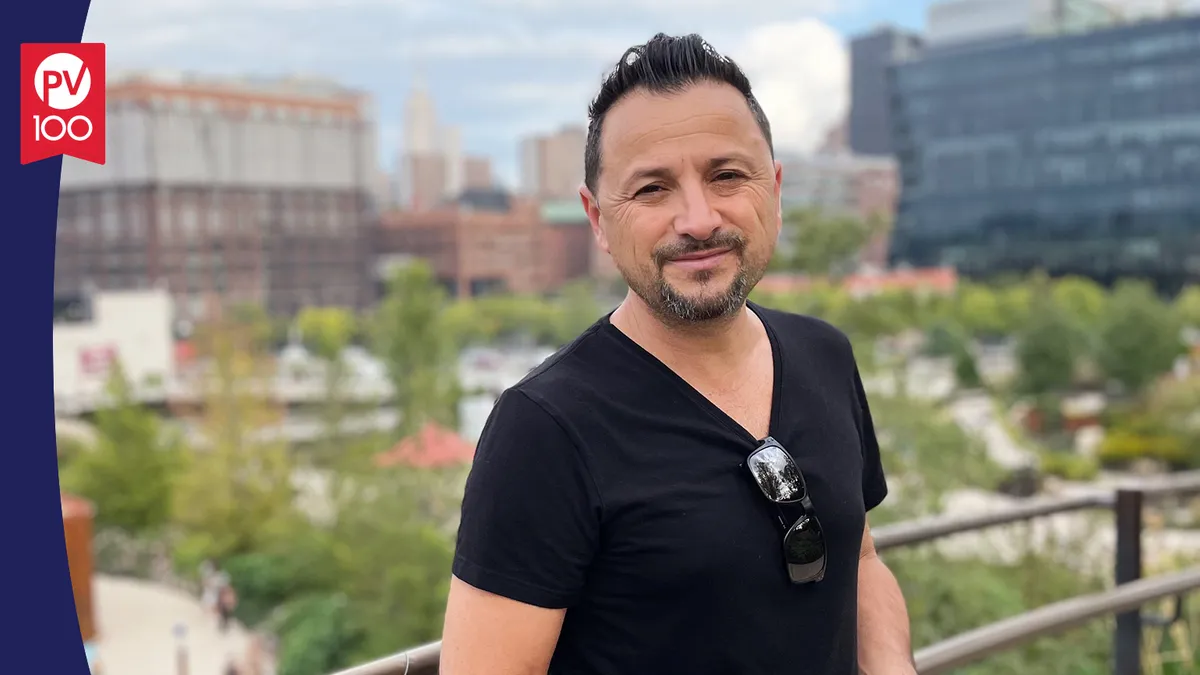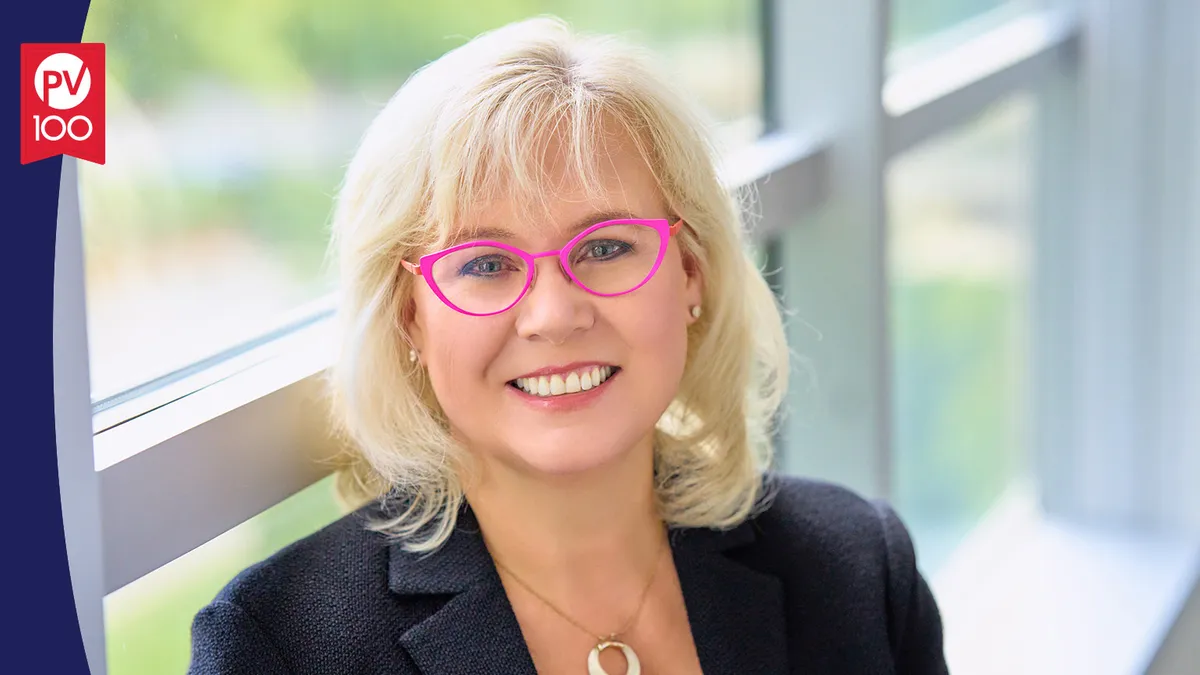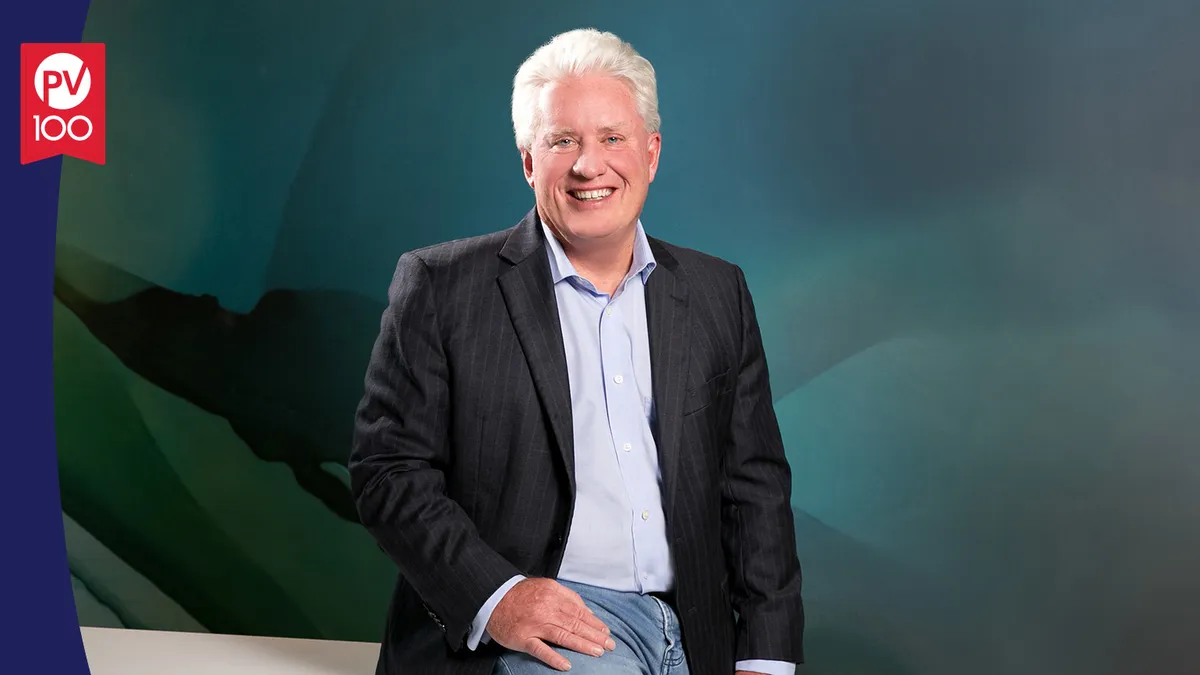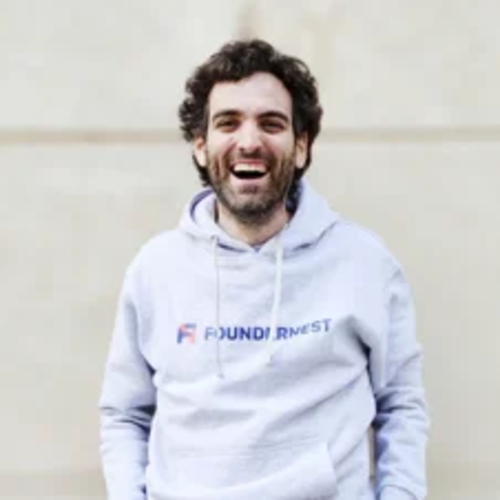Editor’s note: This story is part of our 2022 Red Jacket awards feature.
For someone who has accomplished so much and helped so many people, Udit Batra is a humble, introspective and self-aware force in the biopharma world. As the CEO of analytical instrument and software company Waters Corp., Batra's devotion to providing tools for public health innovation — particularly during a health crisis — is driven by three mainstays: competence, courage and compassion.
These values are what have landed Batra on the list of PharmaVoice 100 nominees multiple times, and this year, placed him among the Red Jackets.
Back when Batra was working on his doctorate in chemical engineering, representatives from Merck & Co. came to campus looking to grant fellowships. Rather than the half-page statement of purpose required to apply, Batra found himself writing a five-page essay about the sacrifices so many had made to get him to where he was and what the opportunity to help people in healthcare would mean to him.
Growing up in New Delhi, Batra was acutely aware of the many people in need of help.
"Having seen so much suffering and so much poverty around me where we were growing up, I felt in a small way if I have the opportunity to take my career more toward helping in healthcare, wouldn't that be something?" Batra said.
He landed a role at Merck, and said that learning about clinical work and medicine became "a love affair." Over time, Batra also learned about the business side of healthcare, and he credits watching Dan Vasella, who was the CEO of Novartis when Batra worked for the Swiss pharma giant, for his inspiration as an executive.
"You can learn day in and day out, every day," Batra said. "There aren't enough hours in the day to learn enough to be able to do this job, so you always feel like there's more to do."
Through it all, he’s remained in awe of what can be accomplished for people in healthcare.
"We have the privilege of working in the healthcare space where technologies are being brought to bear to solve very difficult problems," Batra said. "Look what we've been able to do during the pandemic. I mean, using the mRNA technology that had been there for so many years, and put that to work to solve the crisis of our times — it's amazing."
One of the problems Batra is looking to solve is that of difficult cell therapy manufacturing. Waters has "a role to play in categorizing cells so that you don't need to invest so much in the manufacturing process," he said, noting that this type of innovation could help get cell therapy to patients more quickly.
Colleagues have picked up on Batra's inspiring and contagious commitment.
"You need to have teams that you like, respect and trust, and each individual should see a unique place in that problem-solving."
Udit Batra
CEO, Waters Corp.
"While there are many stories that I could share to demonstrate [Batra's] strengths, I am most inspired by three facets: his compassionate leadership and the focus on future growth; his forward-looking approach to innovation and collaboration; and his passion for education and inclusion," one of his nominators said.
Batra likes to stay grounded by thinking of simpler times from his childhood. The cricket pitch is a place he remembers fondly, and he keeps a cricket ball on his desk to remind him of friends who don't hesitate to tell it like it is.
"That cricket ball reminds all the time of who I am and not what I am," Batra said. "It reminds me of the friends who never forget to curse at me and make fun of me 99.9% of the time — I want to remember that all the time."
Here, Batra talks about why he focuses on problems worth solving to give his organization purpose, and how he approaches his role as CEO with a combination of "logic and love.”
This interview has been edited for style and brevity.
PHARMAVOICE: What do you believe is your greatest leadership strength?
UDIT BATRA: I'm a work in progress, but I feel having the humility to listen and learn, read a lot, and pay attention to what's happening is the most foundational element. And if you're able to do that, I think that helps you understand the context. But in the end, these roles come with responsibility and you have to decide — despite all the listening, despite all the learning, you still have to be able to decide independently. The balance of those two things has helped me a lot. The humility to learn but also the confidence to say, ‘OK, I've listened a lot, I've learned a lot, and this is the direction we're going to choose based on independent thinking.’
These days especially, there's so much information that's available and you really have to think independently to say, ‘Is this credible? Is this not credible? Does this fit with my own observations? Does it fit with the facts I've seen?’ And to be able to take all that into account and make up your mind on your own, I think that's at a premium. The balance between those two is what has helped me in all my roles.
How do you inspire your teams to reach beyond your goals and buy into your vision?
We're a scientific organization, and people respond to facts and logic — they want to be convinced and not pushed. The logic part, the hard part of deciding, pushing and pace setting is critical, but nothing sustains if you don't have love in the mix. Logic and love. And by love I mean unless you have an inspiring problem to solve that goes well beyond you, unless you have an environment where you can foster compassion and collaboration, nobody wants to work in that organization.
Are we working on problems that are worth solving? Are we working on ensuring, as an example, that cell therapy gets to as many patients as possible? We have a role to play there — the No. 1 reason why cell therapy is not available to many more patients is because the manufacturing process and analytical tests are slow and they're not robust. That is in our wheelhouse and our teams are super inspired to solve that sort of a problem. It's a problem worth solving.
You need to have teams that you like, respect and trust, and each individual should see a unique place in that problem-solving. We are trying to make sure that each of us in our own way makes a unique contribution.
What is a leadership skill that you honed or even acquired over the last two years that you will continue to bring forward as we move into the next level of the pandemic?
There are three things that I try to hone in myself. No. 1 is competence — if you're in a job and you have a task to do, learn about it and do it better than anybody else can do it. The second is courage, having the courage to act. But the most important is the third one, which is compassion, which has its roots in self-awareness, in trying to find yourself first.
You must have the ability to listen, to empathize with another point of view, and it all has the foundation in your own rainbow of emotions that you have. So that you can say, ‘Well, you know what, I might not be expressing this one emotion as deeply.’ But if you are, even if you have a small snippet of that emotion in you, you can then recognize that emotion gets amplified in another, and that allows you to build a common bridge.
"When I’m done, I hope I’ve worked on a few problems that have helped people well beyond where my sphere of immediate influence is."
Udit Batra
CEO, Waters Corp.
It starts with meditating, always finding time to learn about other cultures, other points of view, and then spending more time listening than speaking. It’s really critical, especially in this day and age where there are so many points of view and they’re easily advertised. It’s not easy for people to distinguish between what is grounded in good thoughts, emotions and facts, and what’s not.
At the end of the day, what impact would you have liked to leave on the industry?
It's too arrogant to think like this. I have very modest goals. I have a great deal of gratitude to have had the chance I have in my life. I just want to be able to use this opportunity to embrace what’s happening around me for more people than myself. And be working on problems that are bigger, so once I’m done, we made some progress on those problems and grand challenges that matter.”
At an individual level, every person that I work with, that I spend time with, at the end I hope should feel at least a fraction of a percent better off. And when I’m done, I hope I’ve worked on a few problems that have helped people well beyond where my sphere of immediate influence is. That’s it, not more.
What would you consider to be a couple of career highlights?
Oh goodness, every day is a highlight. Every day is filled with new and interesting things. In general, I've had the opportunity to work with amazing people who are intellectually and emotionally so much better than I am.
If you were to pick a couple of examples, in the last pandemic, the H1N1 pandemic, I had the opportunity to lead part of the vaccines business for Novartis at the time and we got to about 30 different countries — and that was a false alarm. When the COVID pandemic came, I felt I was very well prepared to think through what was required to keep running an organization, keep helping people get products that helped in producing vaccines in not one but two different companies, at first at MilliporeSigma and then at Waters.
Our teams were deeply involved with the different innovators on different types of vaccines. I'm incredibly proud of that. We don't need public awards for it; we just simply are happy that we were involved, and to work around those people has been absolutely thrilling.
What are some key pieces of advice you give to your folks?
The single best advice I can give people is: If you want to amplify your learning, plan like crazy. Then have discipline in the execution that you had planned, and that'll force you to ensure that you're learning so that you can continue to change your plan. And I'll circle back to what I said earlier — when I look for people to bring into the organization, we're looking for competence, courage and compassion.
What keeps you up at night when you think about the current state of affairs?
The obvious ones are the macroeconomic challenges we’re all facing during this time. And as leaders, many of us have not really managed through such inflationary times — and of course none of us have managed through a pandemic. And that’s something that has to, in any leader’s mind, be an experience that is unprecedented. It has to be an experience that is challenging because there is no rulebook and you have to go back to real fundamentals.
For instance, in our segment, the demand is very robust. Customers still want our products, we’re launching new products and they’re getting embedded deeply into the problems they’re trying to solve. On the demand side, we’re not seeing a slowdown at all. On the other hand, there is hardship as prices for commodities rise. How do you deal with that to make sure that your colleagues and the employees that you have are not facing undue challenges? That’s a challenge that one has to think through pretty hard.
See our full list of 2022 PharmaVoice 100 winners.


